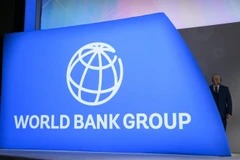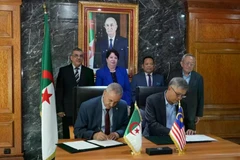Bangkok (VNA) - Thailand is taking innovative steps to prepare for the upcoming rainy season by enlisting trained elephants in a large-scale flood response drill in Mae Taeng district, Chiang Mai province.
Over 30 rescuers and four trained elephants conducted a large-scale drill in Mae Taeng district to prepare for flash floods and evacuate animals.
The exercise followed a 2024 flash flood on the Mae Taeng River that killed numerous livestock and elephants.
The drill simulated severe flooding, with rescuers and the “Giant Rescuers”, working to move animals to safety. Using ropes and specialised equipment, they successfully navigated strong currents. This unit will coordinate with veterinary and volunteer networks, serving as a model for integrating animals into systematic rescue missions.
It will also establish a system for caring for injured animals. Future plans include expanding local collaborations for faster, safer disaster response./.




























